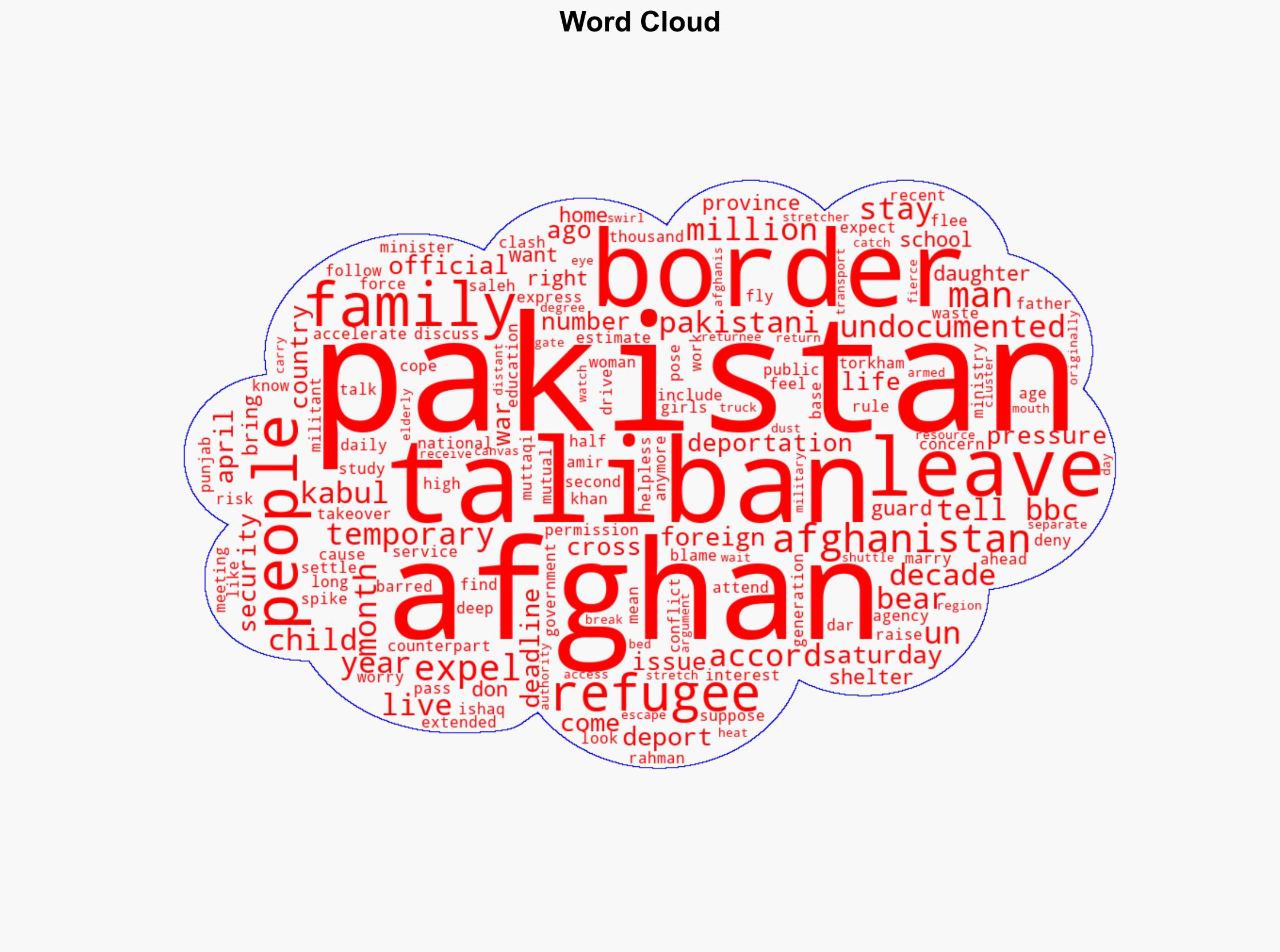Pakistan expels tens of thousands of Afghans – BBC News
Published on: 2025-04-19
Intelligence Report: Pakistan expels tens of thousands of Afghans – BBC News
1. BLUF (Bottom Line Up Front)
Pakistan has initiated the expulsion of tens of thousands of Afghan nationals, citing national security concerns and pressures on public services. This move is expected to exacerbate regional tensions and humanitarian challenges, particularly affecting Afghanistan’s already fragile infrastructure and economy. Immediate diplomatic engagement and humanitarian support are recommended to manage the fallout.
2. Detailed Analysis
The following structured analytic techniques have been applied:
General Analysis
The expulsion of Afghan nationals from Pakistan is driven by security concerns and the burden on public services. The Pakistani government has set an April deadline for undocumented Afghans to leave, with deportations accelerating as the deadline approaches. This action follows a history of border clashes and accusations of militancy support. The humanitarian impact is significant, with many Afghans having lived in Pakistan for decades, creating deep-rooted social and economic ties. The expulsion is likely to increase instability in Afghanistan, where infrastructure and resources are already strained.
3. Implications and Strategic Risks
The mass deportation poses several risks, including heightened regional instability and increased humanitarian crises. The influx of returnees to Afghanistan could overwhelm its limited resources, potentially leading to increased poverty and social unrest. The situation may also strain Pakistan’s diplomatic relations with Afghanistan and other neighboring countries. Additionally, the expulsion could fuel anti-Pakistan sentiment among Afghans, possibly leading to retaliatory actions or increased support for militant groups.
4. Recommendations and Outlook
- Engage in diplomatic dialogue with Afghan authorities to manage the return process and mitigate humanitarian impacts.
- Coordinate with international organizations to provide humanitarian aid and support infrastructure development in Afghanistan.
- Monitor border regions for potential security threats and increase intelligence-sharing with regional partners.
- Consider extending the deadline for deportations to allow for a more orderly and humane process.
- Scenario-based projection: If diplomatic efforts are successful, tensions may decrease, leading to improved bilateral relations. Conversely, failure to address humanitarian needs could result in increased instability and security threats.
5. Key Individuals and Entities
Isha Dar, Amir Khan Muttaqi, Rahman, Saleh, Hedayatullah Yad Shinwari, Bakht Jamal Gohar, Chaudhry, Daniel Wittenberg, Mallory Moench.





